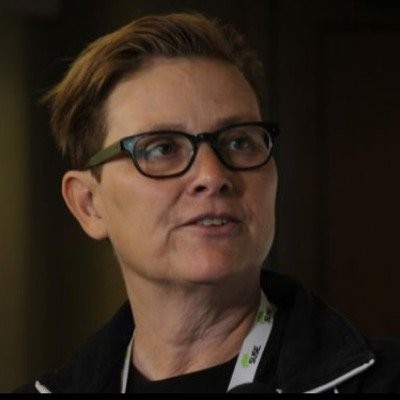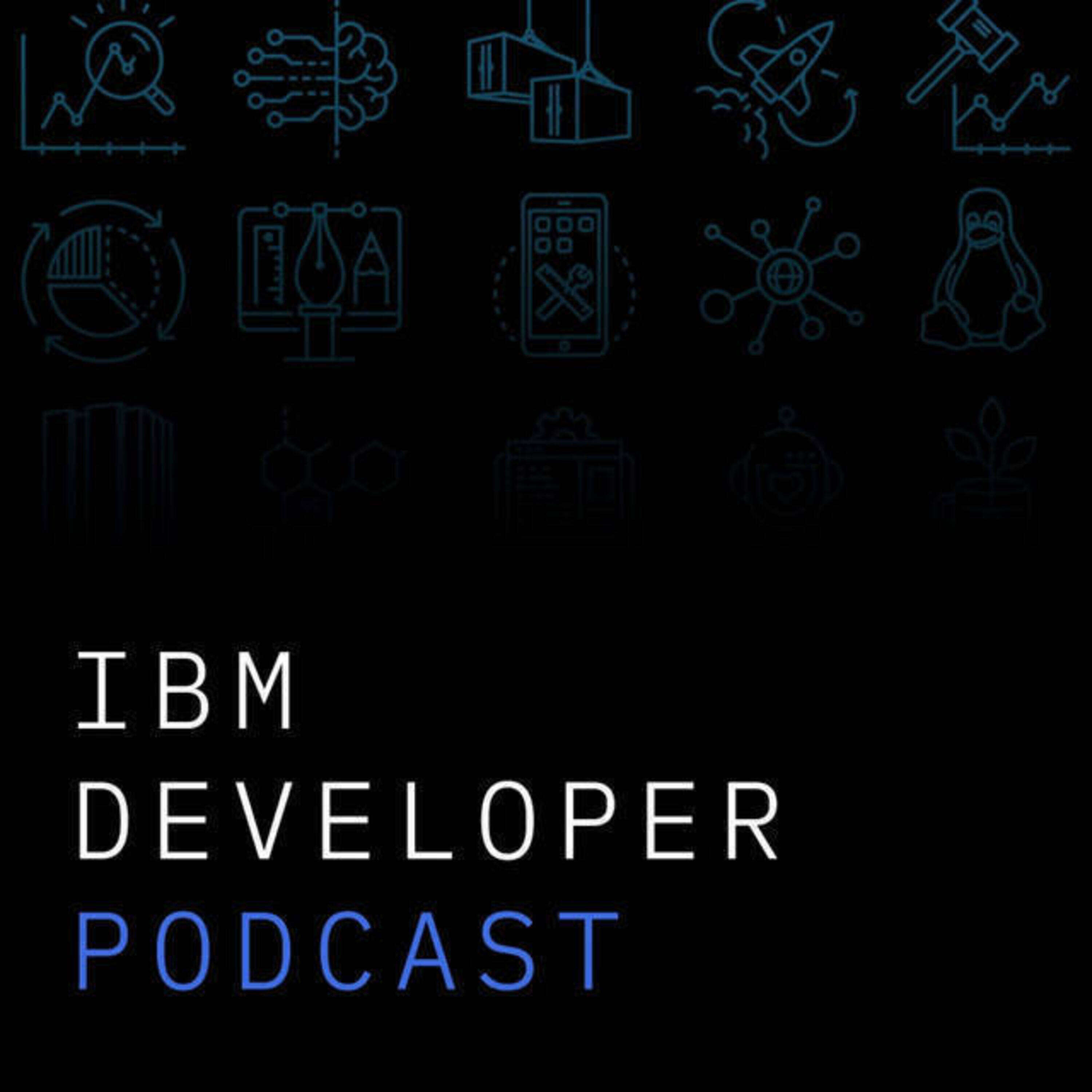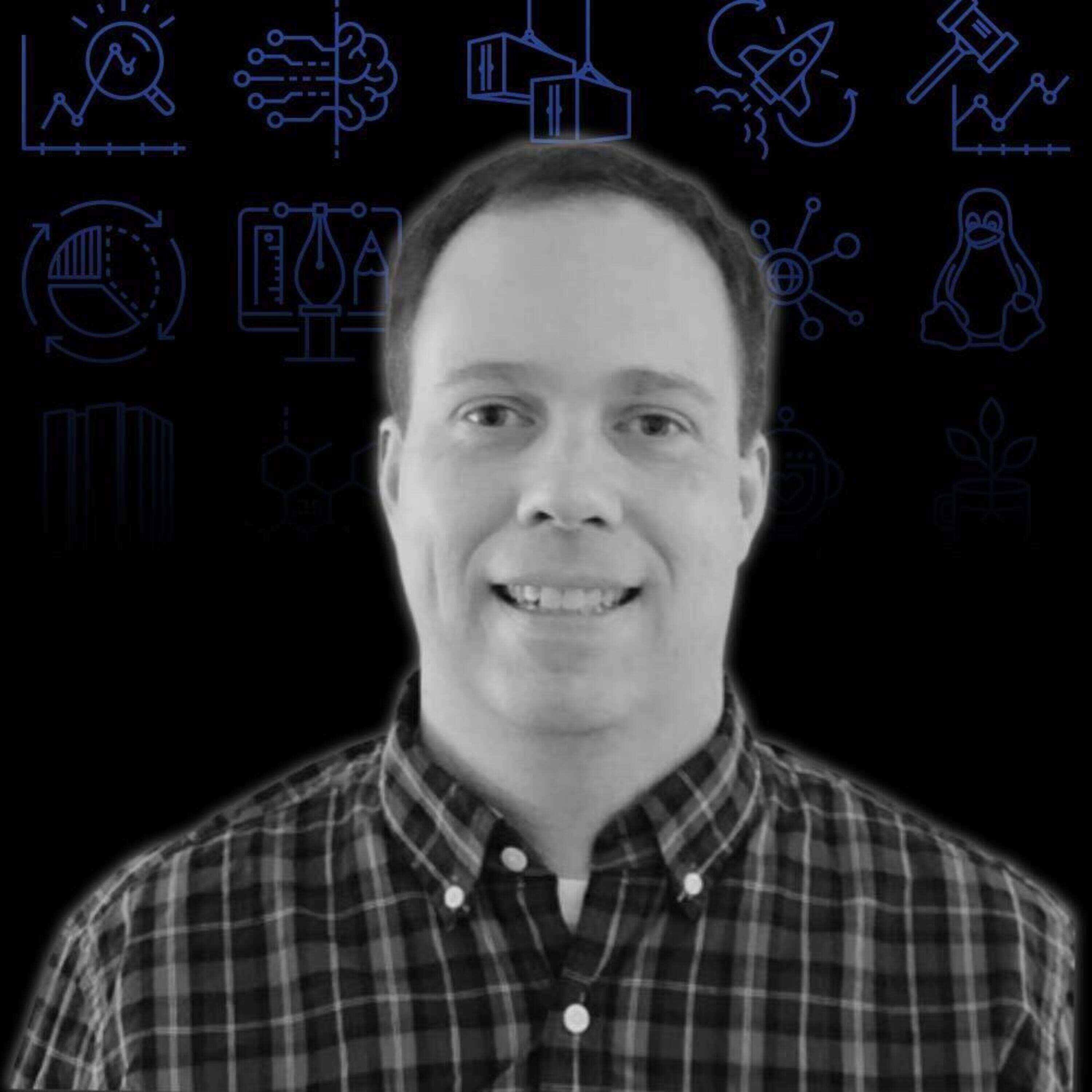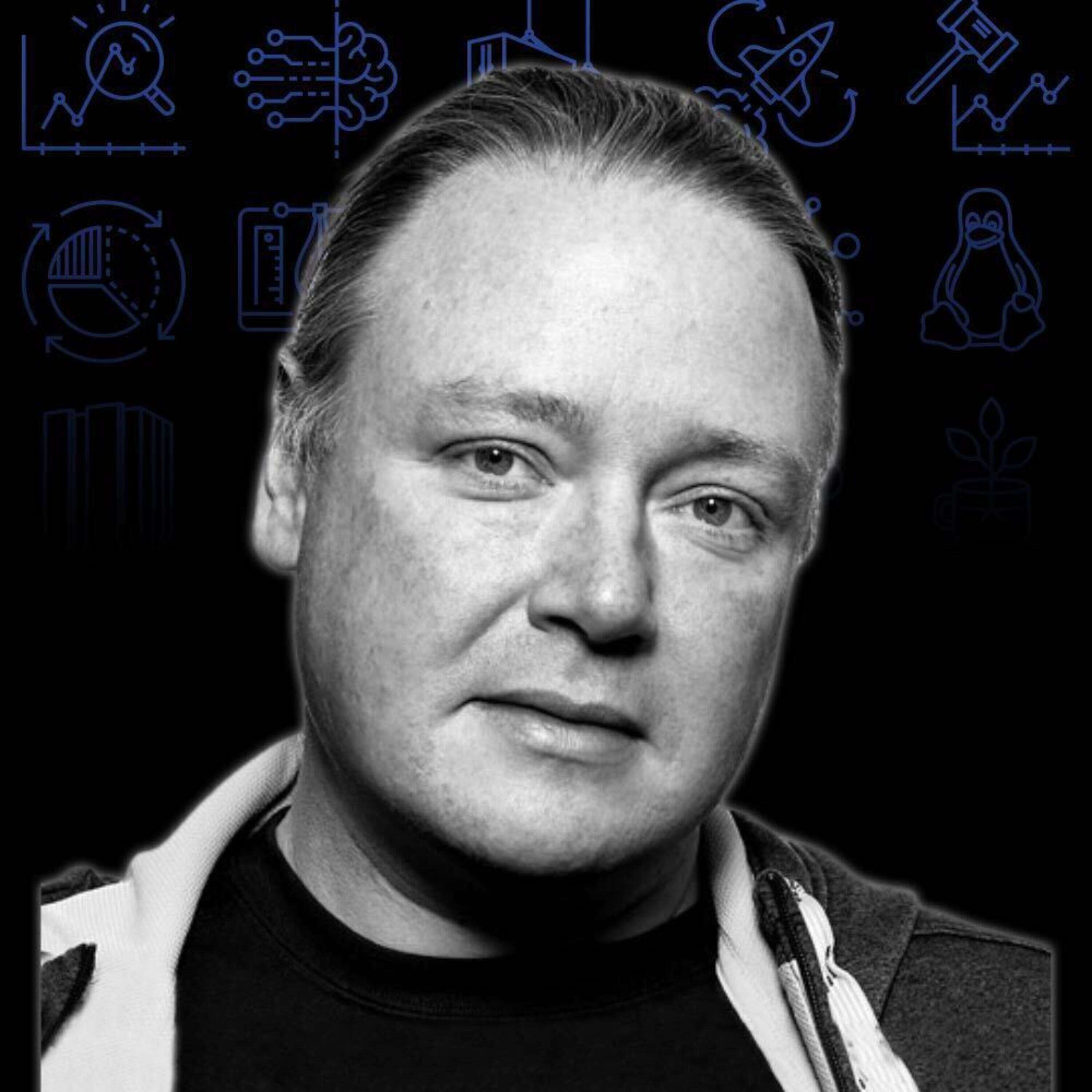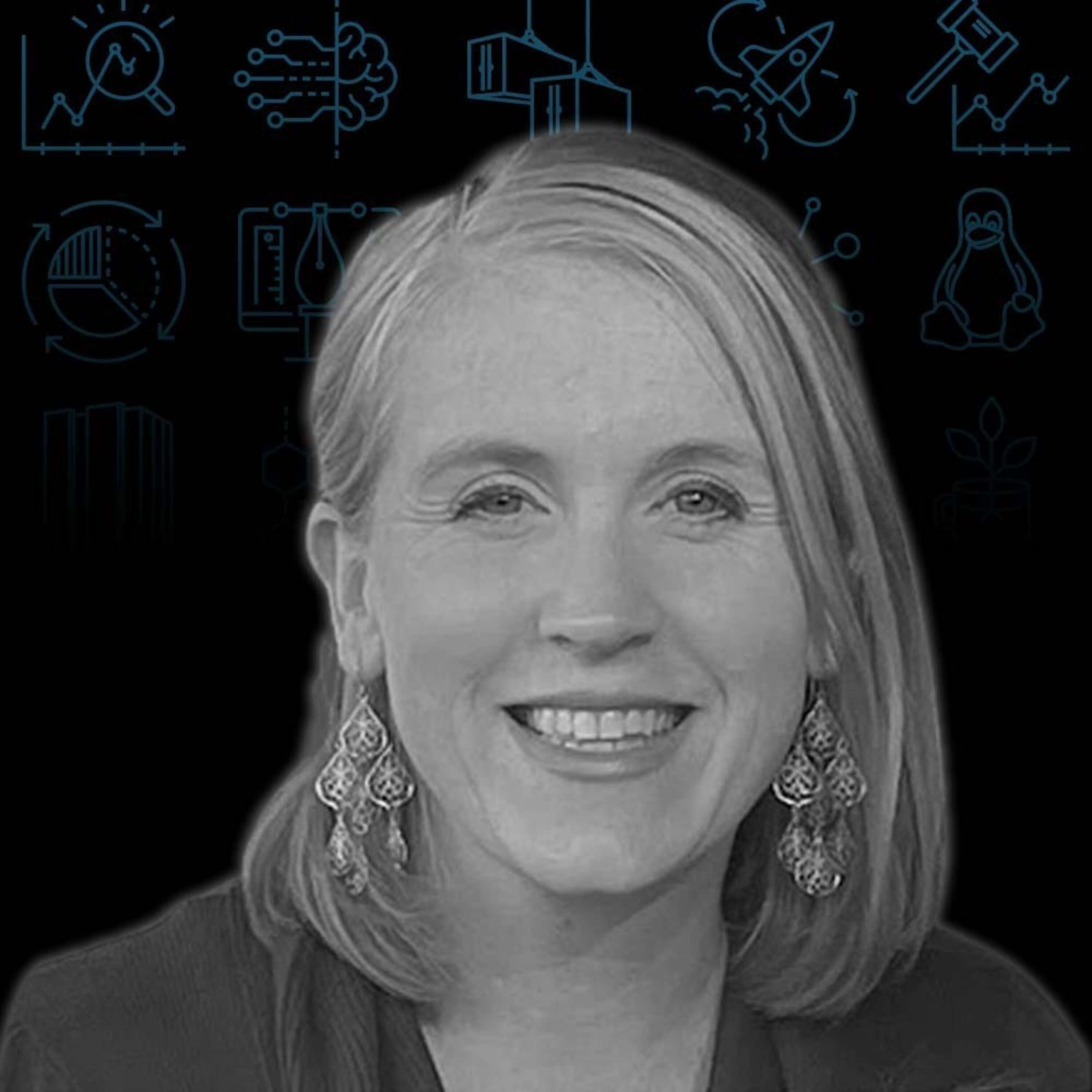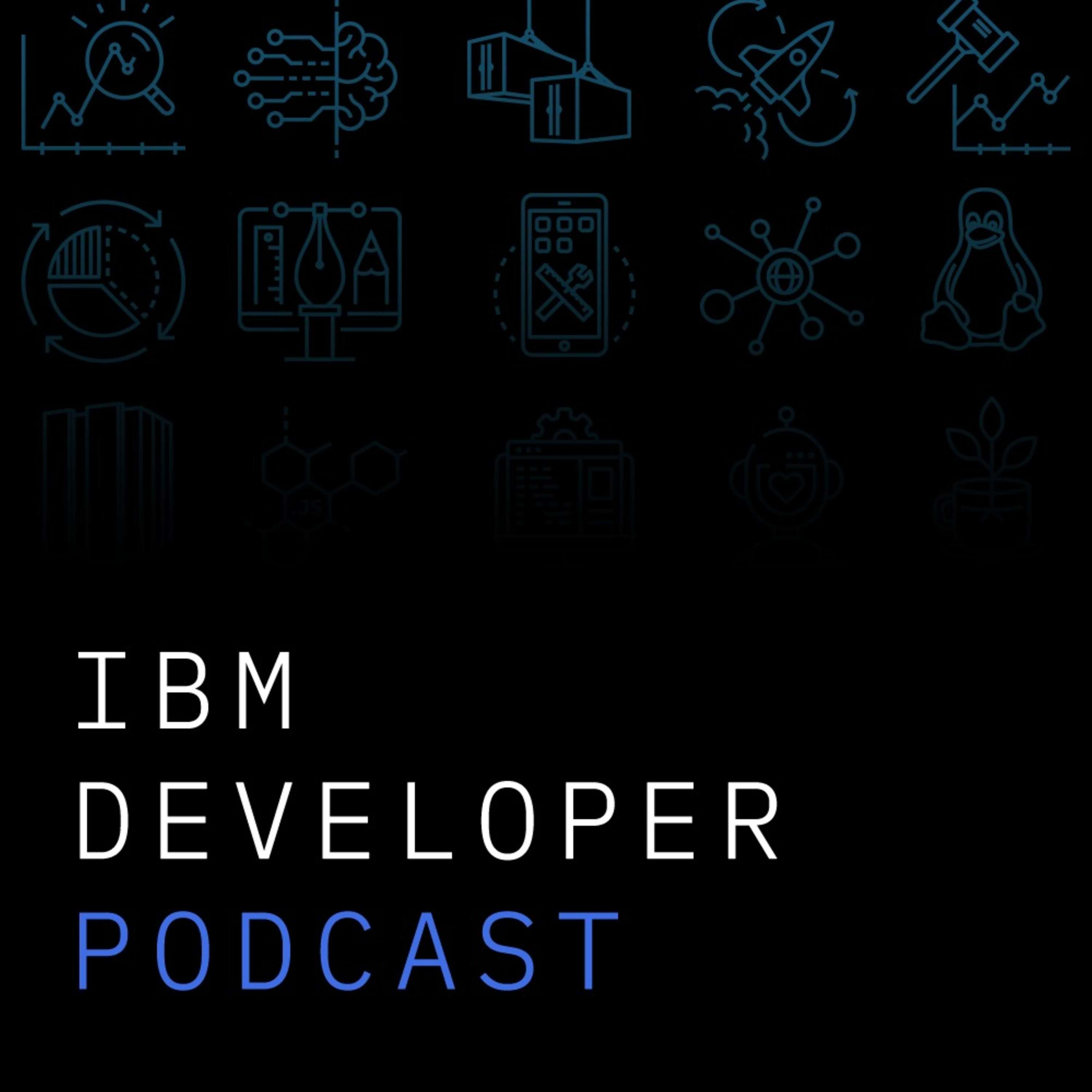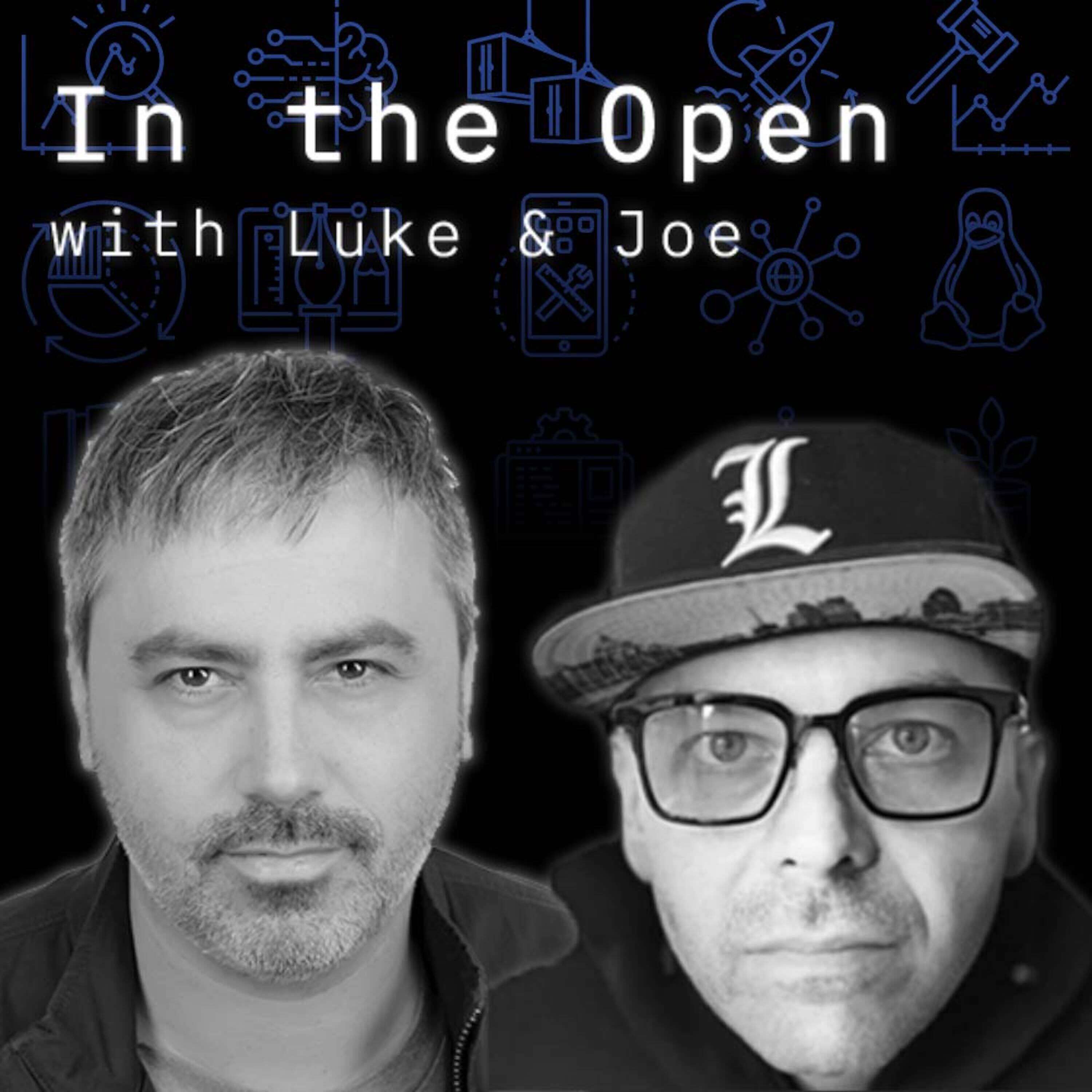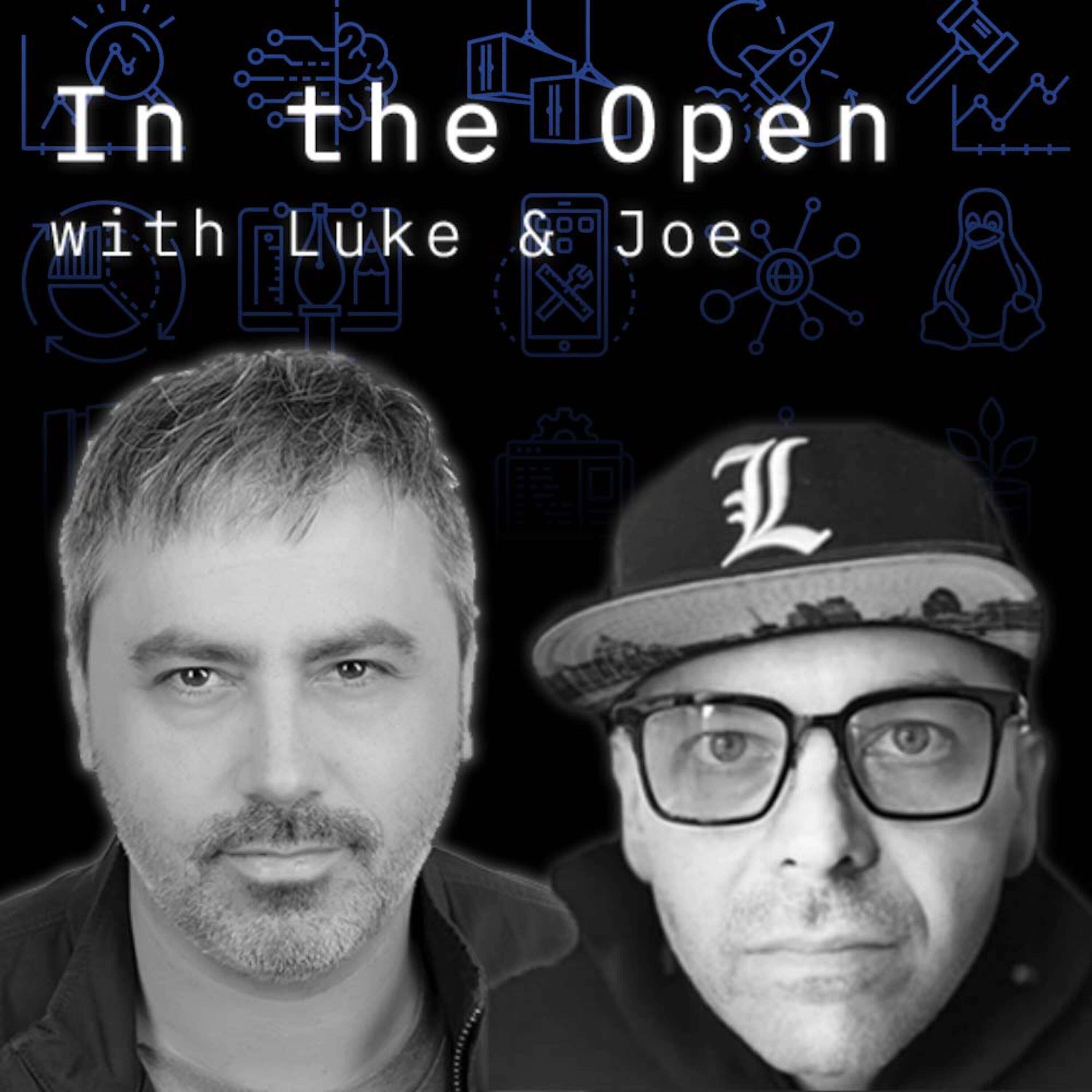Diane Muller | Red Hat OpenShift Commons | Part 2
- 0.5
- 1
- 1.25
- 1.5
- 1.75
- 2
Luke Schantz: Hello and welcome to the IBM Developer Podcast. I'm your host, Luke Schantz. In this episode, we are bringing you part two of my conversation with Diane Mueller. Diane is the director of community Development at Red Hat, the founder and organizer of the OpenShift Commons and co- chair of the OKD working group. OKD, being the community distribution of Kubernetes that powers Red Hat's OpenShift. I had a long conversation with Diane and we discussed both community organizing and software development. And I want to pick up at the part of the conversation where we are talking about the intersection of technology and open source community building, specifically how she's using data science and network analysis tools in her community building. This lets them manage a diverse community of thousands of collaborators in a way that doesn't sacrifice the human touch and interpersonal relationships. So without further ado, let's get to a conversation with Diane Mueller.
Diane Mueller: It's all about creating human connections and identifying human connections between projects. In some ways it's humanizing huge ecosystems. It's allowing us to figure out who's working where on what, who's an expert on something, who's new to a project that might need more resources. Identifying where resources are lacking. Really, one of my favorite things about some of these tools is identifying people who are willing to talk and be thought leaders on a topic and growing them. Maybe I would've never known about them. I tell all kinds of stories. I could go on for days about finding someone at some small company that then contributed a key piece of something to another project just because you nudged them. They said, " You know this and this person knows this, and some user asked for that, and I know you're working on this. Can you meet this guy and just talk a little bit or this woman and bring them along too?" And that's really the thing that keeps me passionate about working on the community side of things. So on the sales and the marketing side, there's lots of applications for these things as well, but they've already had tools and CRMs and things like that for tracking. And in some ways what we're doing is trying to apply some of the practices that people use outside, but not like spamming people or sending emails and stuff like that. But just to really enable other people to find other people. And I talk a lot about anonymity is dead, but you still have to respect people's privacy. And one of the things about OpenShift Commons is we have over 500 member organizations. And our only real gatekeeping rule is that when you join our Slack or you join our mailing list is that you use your corporate email address. Because we have found that by not being anonymous, it is the most helpful thing in creating peer- to- peer networks. When people know who's your backer, who you're, where you're coming from, can look up your LinkedIn profile. If you're a competitor, maybe they can't talk to you, but the anonymity factor is sort of taken away with Commons. So that's another key feature of the Commons model. It's much easier for someone from Amadeus to find someone from the University of Laval, or someone from there who's doing some cool open data hub work or whatever, and know and trust that connection. So a lot of it's about building trust. So we've done a lot of work around creating a culture, an open culture at Red Hat, but a lot of about creating engaged communities that trust each other enough to share their stories. And that's really an amazing thing that we've been able to do, and we're happy to talk about it at length to anybody who wants to talk. So you can find me easily @ commons. openshift. org. You can join OpenShift Commons. There's very little gatekeeping at all. And like I said, there are only rules, there's no anonymity. And anyways, in this day and age, if you think you're anonymous, you're full on yourself. And that's kind of it. But we have a really great active community. And though it started out as OpenShift Commons, it's really embraced all the CNCF projects and a lot of the ancillary things even outside of that. And it's a fabulous place to be and a wonderful group of people to work with.
Luke Schantz: You had mentioned competitors are sharing this same space and working in the Commons. Something that I've been noticing more since getting involved in open source, while we are maybe competing in certain products or certain markets, everybody is actually really collaborating on the plumbing now. So there's this, there's a huge in... Just from folks I know at IBM and Google and AWS, they may work more with each other sometimes than with IBMers if you're on open source.
Diane Mueller: Oh, we definitely do. And Kubernetes is a great example of that. And the OpenShift team, when we pivoted to being Kubernetes, we're working directly. Engineers are working directly on Kubernetes that used to be dedicated to OpenShift. It's a complete shift, like a mind shift in how people collaborate and work in the SIGs and in Kubernetes, you'll see competitors on the product side working side by side on the technical committee for Kubernetes and for some of the CNCF projects. It's hard to see any value in creating a proprietary product or a single source, even if you put it in the open source and controlling it yourself, there's no way anyone wants to be the sole or should want to be the sole maintainer of a project anymore. One, it doesn't scale and two, not as much fun. You don't get as much insight into different users, different use cases, and everybody brings great insights into the projects and there's still competition out there, but it's more on the product side than it is on the open source side. And that's been a wonderful thing.
Luke Schantz: Something I've heard you say, the era of DIY system architecture is pretty much over and Kubernetes, it really does solve problems that maybe you don't know you had.
Diane Mueller: Yeah, I mean if someone was to come along and try and build their own cluster management layer for clouds that worked on every cloud everywhere like hybrid that worked on Bare Metal, worked on Amazon, worked on Google Cloud, you couldn't do it. You couldn't do it without the cooperation of all those cloud providers and the resources to understand the nature of their infrastructures. And OpenStack is another example of that. What they would probably end up with is something that worked really good on any one of those things, and then as soon as they wanted to stretch their wings and go somewhere else, they'd be re- engineering the whole thing. It's just the era of standalone individual projects is next to dead. That isn't to say that people don't have great ideas, create individual projects that then grow into something really cool. And GitHub is filled with those. I'm constantly stumbling on new things, ROOK, all kinds of amazing projects out there that are great, but all of them evolve into collaborations. Everything is, it's the nature of open source is to collaborate with others and to share with others and share stories, share code, share use cases, share insights and innovations. And it's through those collaboration that innovation happens. And just, I can't imagine a world anymore without open source.
Luke Schantz: And as you mentioned, there's room for all sorts of innovation even within, I mean, Kubernetes is just this orchestration framework, but there's an ecosystem of what hundreds of-
Diane Mueller: God, don't click on it. But if you go to, I think it's landscape. cncf. io, you can see this amazing mashup of all the projects and products and things that are around the Kubernetes ecosystem. It's kind of crazy making to look at it because there's just too much on that diagram. You have to figure out another visualization technique for that, but it's the opportunity to do all kinds of great innovation is amazing. I've been working on a project called operatorhub.io and I'm constantly amazed to where it shows up and it's like, yeah, every once in a while someone will do something like a Drupal Operator and I have this little script that I run on Saturday mornings with my coffee. I know that sounds sad. And it runs and it looks for every reference in GitHub of operator- sdk, which is the SDK for building operators. And we do lots of courses. And so when you run this, and I've been doing it for the past seven or eight months now, in the beginning you'd see like 500 mentions, 500 was really, when we hit 500 mentions of the operator- sdk. That was like six months ago. I was like, wow, look, we built something and people are using it. Now I run it on a Saturday morning. And it's just phenomenal the places where it shows up and the things that people are building using the operator pattern and the operator framework for. And you never know where... When you plant the seed for something, when you give people the tools or a piece of a tool, what other tools they're going to create to work with it to make a real good toolkit, what other things they're going to grow in that garden with those tools or build with those tools. And I am... I just can't. It just blows my mind how far the reaches of a small idea that came out of CoreOS to create an SDK for operators for Kubernetes has turned into something that's just amazing. And that happens every day. There's something new out there every day. And I joke about it, but in the past it was knowable. You could know all the Python libraries that should go into a Python distribution. I used to do that work for a company called Active State in Vancouver that did Python distributions and... Wonderful company, PERL, Python, Tcl/ Tk all kinds of fun stuff there. Great people shout out to them, they're still doing it. But it's like it was knowable. You could build a Python distribution and know everything that should be in it and all... Used to have to check all the licenses to make sure there were no poison pill licenses or something. That was a strange little job that I had. It was great. And that was knowable. It's not knowable anymore. So that's why I keep coming back to applying data science and data analytics and really being able to look at it not from who's contributing to my project, but from a peer- to- peer or a networked thing of where are people contributing and who are these people and why are they contributing and trying to understand the nature of the connections between projects. And without some of the tools to do that, there's no way you could scale, you could do this job, and really understand where the hockey puck is going.
Luke Schantz: That makes a lot of sense. And instead of, as you mentioned, being very domain specific, I want people on my project, this is an emergent process that actually serves any of these organizations in the long run because instead of you having to be like, oh, we've got to come up with the next great idea and project it, if you are part of what's emerging and you follow it as it's emerging and you react to the community or now you're benefiting, like, hey we thought we had this problem, it turns out the community's solving this problem and now we're going to benefit from what they've done and we figured out the path.
Diane Mueller: Or you can see, all of a sudden a bunch of people who are end user contributors to your project are all of a sudden working with Kafka, right? And it's like, oh, we weren't really paying attention to the Apache Spark universe of things. It's just we are, don't worry. But it's like you can see where your customers are going. What are they interested in? What are the new toolings using? You can do that with product managers going and visiting a customer. You can do that with asking them for feedback. And if you create a good community and an engaged community, they'll tell you, give them feedback mechanisms. And that's part of why we give people the podium at the Commons and things, get them to tell us. We don't want to tell them to tell us how wonderful we are. That's, feels good. It's great. But what we'd rather do is tell us what's missing, what they need next. And by giving people the podium, they share that. I always ask people to tell us everything that's in their stack, not just talk about Kubernetes or OpenShift. Tell us what you're doing in it. What's the workload that you're running? We're going to host an OpenShift Commons gathering in the Bay Area in October on basically focusing on ML, AI and AIOps workloads, and what they need in order to, in a perfect world, to run and what the data scientists need, what the assisted mens need to help the data scientist. So it's focusing on that aspect of it. And it's going to be really mind blowing because there's all kinds of interesting things people are doing on top of our stuff, but it does impact if we don't listen to those stories, we don't hear Jupyterhub. We need Jupyter working better. We need better more open data hub approach to things. We need these things. We need to not make data scientists have to be sys admins in order to train their models. Those kinds of conversations really, we have to give an opening for that to make sure that Kubernetes and OpenShift and all of the ancillary products support that. There's lots of other aspects to it too. It's like, I think things, lessons that we can learn from the OpenStack days, OpenStack had a very big tent model where they embraced and brought things under the tent. And Kubernetes, I think what's interesting, and you can see it in some of these network diagrams too is, they put constraints around what could be in Kubernetes. And those constraints are really healthy things. They come from governance, they come from the technical committee oversights and what the definition of what Kubernetes is, which has allowed ancillary projects to go outside Prometheus and tons of other, the Jaeger and open tracing, I'm stuck on them. Those kinds of things. There's a ton of other ones. Look at the landscape diagram, it's scary. But that innovation, that constraint of what is Kubernetes, what can be in Kubernetes has allowed for a much more healthy growth of other ancillary projects. And I think those are kinds of some of the things that we've learned from other projects and has really created a much more interesting and vibrant community and ecosystem around Kubernetes and under Kubernetes and over Kubernetes and integrated into Kubernetes, that's hopefully sustainable and engaged and will grow and become like HTML. We won't ever say Kubernetes out loud someday. Can you imagine that? I can't quite yet, but I expect that at some point Kubernetes will just be under the hood.
Luke Schantz: That is fascinating, especially because these last few years it has been, I mean, it-
Diane Mueller: Is the hot sauce, right?
Luke Schantz: Yeah.
Diane Mueller: If you're not working on Kubernetes, who are you? But the thing is, like any technology of the past, for me, the marker of success of a project is when we forget it's there and we just use it.
Luke Schantz: I must say, coming from an infrastructure as a service world, I came from SoftLayer. I did feel like I was losing something in what was happening. But the more I've learned about it, I've actually realized, no, this is solving problems I had. Or like you were saying, I was working in infrastructure as a service for startups and it was daunting to figure out how you're going to build your infrastructure and run your servers and redundancy and monitoring and all of these writing your rules for scaling, very complicated and not your core business. And people write many technology, right? How many times do people have to replicate this same work before we create an abstraction that allows us to focus on what we're really trying to do?
Diane Mueller: And it's a lonely world. If you're not collaborating in an open source way or... You don't have people to help you innovate. You don't have people to help you see it from another side, from another angle who are looking at it from a different use case, from a different approach. And so you don't get the innovative healthy project that's really robust. And I think that is the beauty of open source projects, whether it's XML or HTML in the day or whatever. It's like, by having all of these different points of views collaborating together, we get much more stable, mature offerings to take to our customers.
Luke Schantz: I'm going to go off on a little bit of a tangent here. It reminds me too of the same way that civilizations and societies learn. We have laws, we have different types of institutions, whether it's family, schools. There is that notion of yes, everybody's an individual and needs to look out for themselves in some way and have that, that's a very healthy thing for us to do. But then we also are overlapping and sharing, it's not sum zero, sum evolutionary, total war world we live in. And I think open sources sort of bringing that to, if you're just selling widgets or just selling these things, yes that seems very zero sum. But now you see that it's a fabric and it connects everybody. And there's, to throw another cliche out, it's a rising tide raises all ships model, right? Where if inaudible shared that someone else would have, and if you try to hold onto it, it's not going to be relevant. You need to engage. And because you're getting so much from the community, you want to feed it out because it builds your eminence and your place in the world.
Diane Mueller: At Red Hat, we have a culture of everything open. And so even when we do any acquisition, we are always trying to make sure with 3scale, and with Quai, and with other products that we've brought in, when the CoreOSF and Tectonic and our whole ethos is, even when we acquire someone who's got a proprietary and closed project, we will work with them and we will eventually make that open source, because we see so much benefit in that. And that collaboration and that innovation driving the adoption of the products, the used cases that the edge use cases informing the maturity and stability of it, that we would never get if we kept it as a propriety one. So it's going to be interesting working with IBM, you have a whole boatload of things that are still proprietary. So we're going to crack some of those nuts open and share them with the world hopefully soon.
Luke Schantz: That sounds great. And I don't think you'll actually encounter too much resistance because especially with IBM's involvement in Linux for so long and-
Diane Mueller: Oh yeah.
Luke Schantz: I think it is in our bones, but maybe we don't tell those stories as well as we should, but I think they're there. And I think when you start to introduce these in a maybe more modern way, I think you're going to find people are going to love it. IBMers are really going to be like, "Tes, this is what..."
Diane Mueller: Yeah.
Luke Schantz: "We want to be able to fly this flag and be really upfront about it."
Diane Mueller: Yeah. So one of the things that projects I'm working on right now is a field guide to community and specifically a field guide to OpenShift Commons for sales and marketing people, is because it is, it's daunting to understand, you have this community thing, that to some salespeople, they think this is undercutting their potential revenue streams or commissions or whatever it is, but there's also rules of engagement for community as well. And so there's a lot of stuff. So look for that in the near future. But I also think, what I like to tell salespeople is that, you have to think of the open source projects as your pipeline because, and people will do what they want with whether it's OKD or something else, they may download it, they may use it in production, and we hope they do. But in the long run, it is the benefits of support and technical support and selling in an open source way. And that's been Red Hat's key success factor is being able to make that model work and drive open source innovation by being and sharing the code base with it, but then also to drive revenue by offering excellent technical support and patches and security and all kinds of wonderful things. And you just have to look at open sources, lead development for your pipelines. We are building new bridges to lots of new people.
Luke Schantz: That's brilliant. And it totally makes sense too, in maybe a hypothetical worst case scenario of a corporate merger and acquisition product thing, where it's like you get a product and you're going to sell it as much as you can until it sort of withers away. Whereas if it's anchored in open source, it actually continually renews, right? It will actually, from a sales and marketing perspective, even if you're... Like you're saying it's a service of an open source product or maybe a product that uses open source in it, being open source is actually going to give you a longer shelf life for products.
Diane Mueller: Oh yeah. We've been pretty successful at Red Hat from a community point of view in at least in the cloud platform BU of engaging with partner development and engaging with ISVs and engaging with people who are hosting and using Origin or OCP, engaging with people who are using OpenShift dedicated or OpenShift online or Azure, Red Hat OpenShift now, there's so many incantations of what OpenShift is, it's insane. So the thing is, you just have to look at all of those people who are users, who are people supporting those things, the hosts that are running OpenShift all around the globe and offering it. Those are your community. Those are part of your ecosystem. The feedback you get from them, the people who tell you what their use cases are, all of that is to me, that is the hugest contribution someone can give. I mean, I love a line of code. I love a new module, a new operator, talk to me if you have an operator. But I would much rather hear someone give me feedback, tell me a new use case that they need supported, and share that with engineers that are working on it in the upstream, share that with people across the whole ecosystem. That to me is the beauty of open source and connected communities.
Luke Schantz: I'm definitely going to look out for this. Is it a book or a blog post? The-
Diane Mueller: It's... I've been joking about doing it as one of those little chat books that you get that says, A field guide, like an inaudible kind of nature guide to that. But yeah, something... Yeah, we haven't quite finished it. We're in the throes of writing it now. But yeah, there's definitely something, because there's a lot of people to educate and a lot of people who, how do you join OpenShift Commons? What is the value proposition for joining OpenShift Commons? Why should a partner engage there? How and why should you do a briefing? There's like all kinds of interesting aspects of the Commons model that, as a party of one and now I have a colleague in EMEA, Tania Repo, who's just joined. So now there's two of us doing it. Wow. It's totally... Shout out to her. And her last name really is Repo, which is not why I hired her, but it's really cool. So, we don't scale. We have to create the content, whether it's about how to work with Commons, how to be part of Commons, how to do Deploy or Jaeger or Prometheus... All of this stuff is about sharing stories, sharing content, creating the channel, and creating the spaces for people to learn about, not just OpenShift, but everything else that's going on in the community too.
Luke Schantz: And you mentioned briefing, is that's the name of the-
Diane Mueller: Yeah, so I have, yeah, twice a week usually if I'm not in some obscure hotel with bad wifi, I try and do a video podcast. OpenShift Commons briefings. If you... commons. openshift. org, there's an events calendar there that kind of shows what's on tap. And if you join Commons, you get added to the mailing list and you'll get an announcement usually on Mondays, sometimes Tuesday mornings if I'm not being good. And it's all kinds of things. We have a talk this week on IoT. We are going to do some really interesting, we just did one on Quai, it's top of mind for me right now. And it could be anything. It could be Dynatrace, it could be Profit Store, talking about AIOps and applying their, I mean, it could be anything. The joke I have is that basically twice a week I get someone giving me a private tutorial with a live audience that does live Q& A. So I'm getting to hear the latest breaking stuff and stuff that breaks. And it's wonderful. I mean, you're doing podcasts too. You get to hear all these great stories, learn about these new technologies. It's wonderful. So the briefings are these virtual things. The gatherings are the face- to- face events, and that usually is three to 500 people in one room, which is a trick sometimes. But it's about creating a space where people meet each other and then you leave time for them to network, long breaks, good coffee, great beer in the afternoons, not in the morning, just creating space for them to meet each other, to share their stories. And it really has been phenomenal to see the growth of the connections and the level of engagement to go over the past three years. And it's a testament to the engineers that are working on OpenShift and all the related projects, that they've been open to standing up on stage sometimes when they don't really want to. The end users who have shared their stories to product managers who have learned new technologies, just so that they can explain how they integrate with OpenShift for me and watch out. Because I will ask, if you share a story with me, I'm going to give you a podium somewhere. So the briefings are a great way to do that without having to leave home. And, I wish I had the equipment that you have, because the quality of them isn't as... It's as good as probably yours are. But it has been a fire hose, but a great fire hose, and a wonderful experience to meet all these people. And yeah, I joke that it's a party of two now, but it's really a party of 10 to 20, 000 people that are connected in this amazing network that is this open source ecosystem that starts with OpenShift, but it's a whole lot more.
Luke Schantz: So let me ask you, where do folks find out about the briefings? Where is that listed?
Diane Mueller: So if you go to commons. openshift. org, there's an events page there. And on the events page, there's, on the menu, the nav, there's briefings and gatherings and everything you need to know to get ahold of us. And there's also a forum to join. So please do join. And if you go to the participant's list and you happen to see your company's already listed there, you don't have to join. You just have to fill out the form and somehow, automatically you'll get added to the mailing list and added. So you only, as an organization, you only join once. So everybody from IBM, IBM joined a while ago, can automatically become part of the community. So there's not a lot of automation. So patience is a good thing, but it's really easy to find us. OpenShift Common without the S is our Twitter handle. Yeah, it's just an interesting thing. And the whole idea around Commons, we have Wiki Commons and all kinds of other Commons too, but I'm originally hail from Boston, and Red Hat has a center of gravity in Massachusetts, and there's that Boston Commons. And it was a place where people could initially just graze their cows or have a farmer's market or whatever, but it's about shared resources, bringing things together and having a community. And we are thrilled to have people join us in that space. Because the wonderful thing about virtual spaces is they're infinitely expandable. And with the right automation and tooling and things, we can learn a lot about those communities and that's what the connected community talks that I give are about. But really it's the human connections that are the resources that we treasure the most.
Luke Schantz: Well, thank you for taking the time to connect with another person here and have this conversation today and looking forward to a future conversation.
Diane Mueller: All right. Can't wait. Take care.
DESCRIPTION
In this episode, our guest is Diane Mueller from Red Hat’s OpenShift Commons community. Diane takes the time so sit down with us to discuss the challenges of community building in today’s expansive open source ecosystem. She reveals how the OpenShift Commons team takes a scientific approach by using network analysis to develop and grow engaged and connected communities.
Today's Guests
